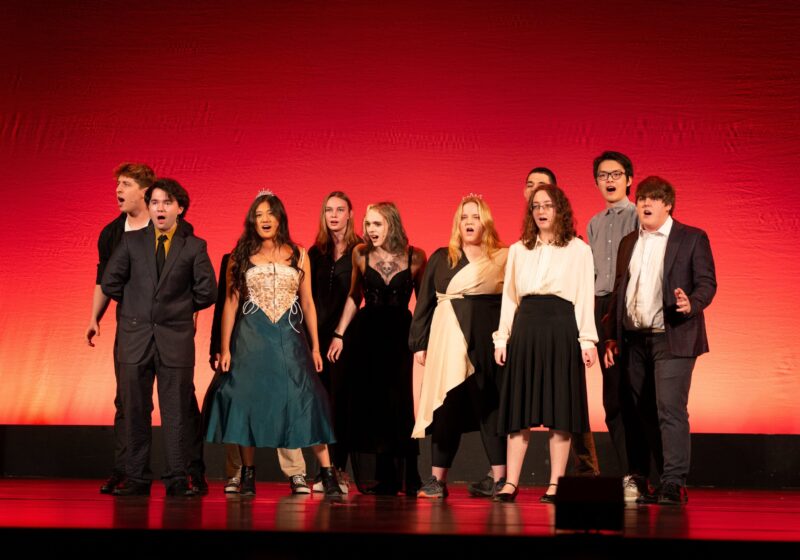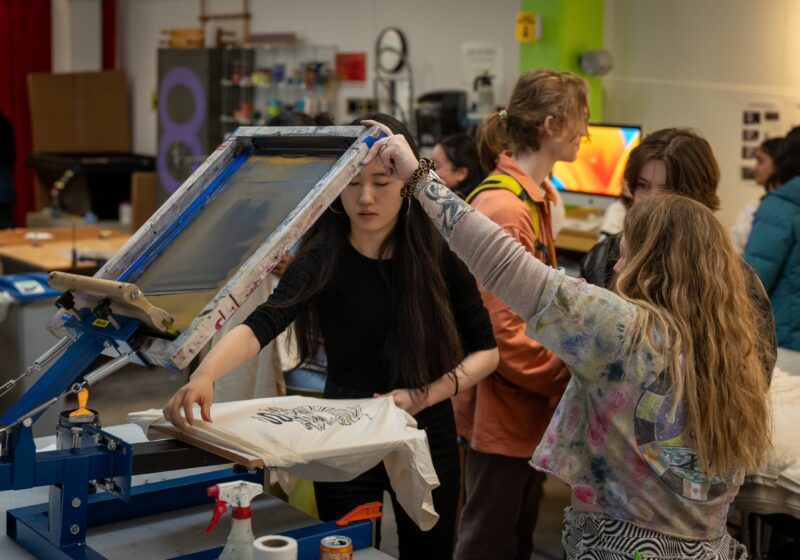New York Senator Hillary Clinton gave the keynote speech for Meliora Weekend, following her vote authorizing President George Bush to use military force in Iraq.
The title of the speech was “Leadership in the 21st Century” and it took place at 3 p.m. on Oct. 10.
While the former First Lady had originally prepared a speech addressing the weekend’s theme of leadership, her comments were largely off-the-cuff, based mostly on her speech given on the floor of the U.S. Senate around 1 a.m. regarding “where America’s leadership stands” in context of the debate surrounding Iraq.
Despite the rings around her eyes, the senator remained composed and steady throughout her speech.
Clinton began talking about the war on terror and the events leading up to it. “When the President and his top advisors responded to September 11, we were all heartbroken by the loss of life,” she said. “We had to accept that the world had grown much smaller and the borders were so much [less defined.]
“We really saw the flip side of globalization,” Clinton said, noting that terrorists used modern tools to destroy.
In explaining her reasoning behind her vote, Clinton pointed to Iraqi President Saddam Hussein. “Saddam carries a unique threat,” she said. “Look at where Milosevic is now ? being tried as a war criminal. That’s where Saddam should be.”
In terms of dealing with Saddam, Clinton said that she fully supports Bush’s decision to take the situation to the United Nations. With her vote, Clinton sent a message to Bush ? “We expect you to work with the security council.”
Clinton’s speech featured various barbs toward what she called “the administration” and specifically Bush’s idea of using unilateral force against Iraq.
“The talk of global dominance from some quarters of this administration is disturbing,” Clinton said.
In an era of distrust toward government officials, Clinton believes her talk about Iraq was vital. “This is an important issue and I think people should hear from their elected leaders,” she said in a press conference afterwards.
Throughout the speech, Clinton expressed that she was torn on her decision.
“This is probably the hardest decision I have ever had to make,” Clinton said. “I ultimately decided that voting for the authorization would be more likely to avoid war than not.”
Recalling her time spent on the other end of Pennsylvania Avenue in the White House, Clinton said, “I think it’s important that a president is given the support he needs to make decisions he thinks are right.”
Immediately following her speech, Clinton was given the biannual Susan B. Anthony Legacy Award for her embodiment of the ideals of Anthony by Susan B. Anthony Center Director Nora Bredes and Students’ Association Speaker of the Senate and Take Five Scholar Ashley Conner.
Protest rally
Approximately 50 people banged drums and picketted Clinton’s speech while people entered the building and during the first few minutes of her speech.
Metro Justice, a Rochester organization dedicated to pursuing peace and justice, organized the protest, according to co-organizer Jon Greenbaum.
“We were out there to show [Clinton’s] hypocracy,” Greenbaum said. “She claimed to not want [unilateral action], yet she empowered Bush to act unilaterally by not tying him to international policy.”
Greenbaum claimed that Clinton lied in three different points in her speech, saying that she did so because “she falsely believes that she will have a better chance at running for President by being a ‘hawk.'”
The organizers of the protest feel it was a success. “Hillary has acted hypocritically, and people get that internally,” Greenbaum said.
“I respect [people’s] strongly held views and their right to protest,” Clinton said. “The way the administration has gone about [informing the public] doesn’t engender confidence.”
Reactions
“The speech was exceptionally good,” medical school Class of 1947 alumnus Dr. Richard Collins said. “It covered curent events well. She’s eloquent and intellectual.”
Some perceived the senator’s ambivalence toward her decision. “She sounded like maybe she didn’t vote [the way] she wanted,” Class of 1947 alumnus Ruth Burgay said. “We might be forcing Saddam to arm himself more.”
Junior and vice president of the College Democrats Sean Croston praised Clinton’s speech. “It was thoughtful, intelligent, and though it was political in context, it connected solidly with the Meliora theme of leadership.”
“She in fact showed leadership by her willingness to come in after a very long night of controversial Senate debate and immediately give an energetic speech, where she took stands on certain issues and explained her so-called ‘partisan’ views to the crowd,” Croston said.
“She spoke convincingly but I’m not sure her argument was as strong as the way she spoke,” graduate student Shona Mookerjee said.
Additional reporting by Megha Ambati, Ben Biggs, Joan Knihnicki and Karen Taylor.
Schnee can be reached at cschnee@campustimes.org.





